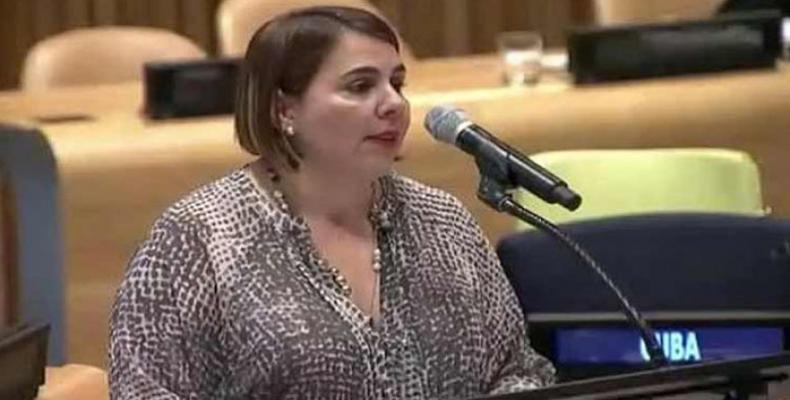New York, September 7 (RHC)-- Cuba has promoted a Culture of Peace at the United Nations in order to save present and future generations from the scourge of war and strengthen respect and dignity for all humanity.
Addressing a High-Level Forum on a Culture of Peace that took place at the UN headquarters, Cuba's Deputy Permanent Representative to the organization, Ambassador Ana Silvia Rodriguez Abascal, said that in order to achieve a culture of peace, a political will and a greater commitment of all States is required to promote respect for life, the end of violence and the practice of non-violence through education, dialogue and cooperation.
“Full respect for the sovereignty and self-determination of peoples, territorial integrity and political independence of States are also required, as well as non-interference in their internal affairs, said the Cuban diplomat. She added that all states alike must commitment themselves to the peaceful settlement of conflicts, efforts to satisfy development needs, the observance of the right to development and the protection of the environment.
The Cuban representative stressed that despite international claims for a culture of peace to be achieved and strengthened, there are still issues that hinder and undermine the real possibilities of achieving such a noble goal. These issues, she said, include intolerance and discrimination on the grounds of ethnic origin, religion or race, as well as the promotion of hate speech and supremacist ideas under the irresponsible use of freedom of expression.
She pointed also to unilateral coercive measures, the threat and use of force, contravening the UN Charter, the promotion of covert agendas for regime change in developing countries, the development of new, more lethal and more sophisticated weapons and the possession by some states of large nuclear arsenals.
Ambassador Rodríguez Abascal concluded by reaffirming the full validity and enforceability of the Proclamation of Latin America and the Caribbean as a Zone of Peace, adopted in 2014 in Havana in the framework of the Second Summit of the Community of Latin American and Caribbean States (CELAC). She said “it is an example of our region's commitment to strengthening peace and negotiated solutions to conflicts and differences, as well as a contribution to the culture of peace at a global level.”


